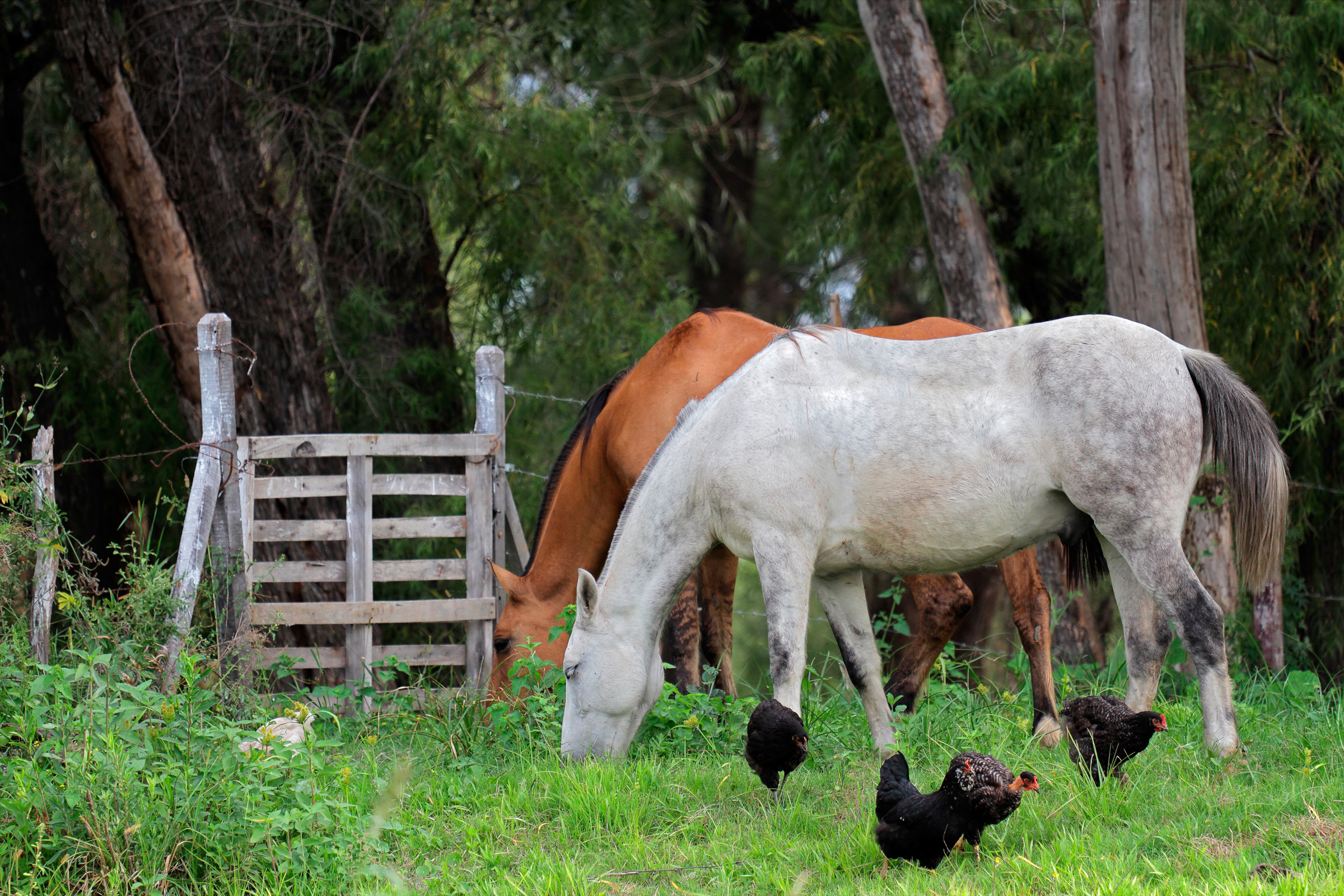
Every rider has had at least one bird dive bomb your ride. Whether it’s swooping among the rafters looking for a place to roost or taking off from the ground, the sudden movement can catch horses (and their riders) unaware.
“Birds that fly out is just another one of those things that we must help the horse understand,” said Captain Lisa Rakes, Captain of the Kentucky Horse Park mounted police. She is one of the most decorated mounted police officers in the country, having trained the top-ranked Lexington Mounted Police unit horses and riders as the unit’s in-house trainer before taking over the Kentucky Horse Park mounted unit. “Horses have to learn that it is okay to jump in their tracks when they are scared but must ask the question of ‘what do you want me to do—run or stay put?’ ”
By their nature, horses are prey animals and are programmed to stay alert and be ready to run at the first sign of danger. To the horse, a bird could be a predator preparing to attack.
“It is unfair for any of us to expect a horse to never jump or be afraid of something,” Rakes said. “If that is the case, we may as well ride a bicycle or machine of some type. It is okay to be afraid of things, but we must help the horse understand that he must check in with us first and ask us the question of /okay what do you want me to do?’ ”
Riders want the horse to check in rather than bolting in fright. But Rakes emphasized that the reality of your horse being startled is a part of riding. Think about the last time you walked into a dark room and someone jumped out of the closet at you. Chances are you jumped, flinched, punched or screamed. Horses, like humans, can be startled and caught unaware. The key is in helping the horse understand to check in with the rider rather than flee or buck.
Inborn behaviors and previous bad experiences can make some animals more flighty than others. Knowing the horse’s background and taking the time do what is best for the individual builds the needed confidence stay rather than flee.
Editor’s note: I lived most of my life in Kentucky, where there are lots of woods and wild turkeys. I’m a firm believer in raising chickens on horse properties. Yes, they poop everywhere, but they have more upsides than downsides. First, you will find that your horses become much less startled by “things” flapping and fluttering around while you are riding when they become used to chickens around them all the time. Second, chickens like to scratch at horse manure and thus break up those balls. That can help reduce flies and internal parasites passed in manure. And third, some horses actually seem to like chickens and are calmed by their presence.


